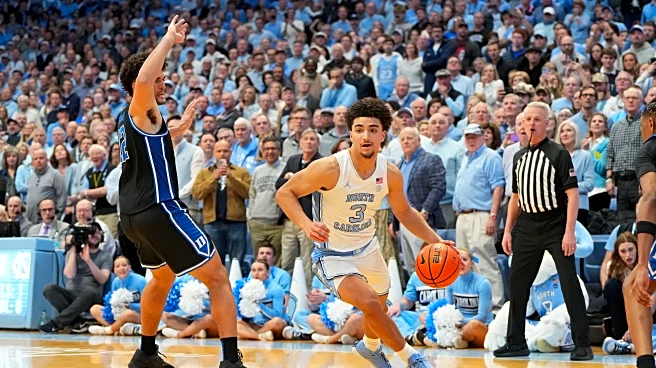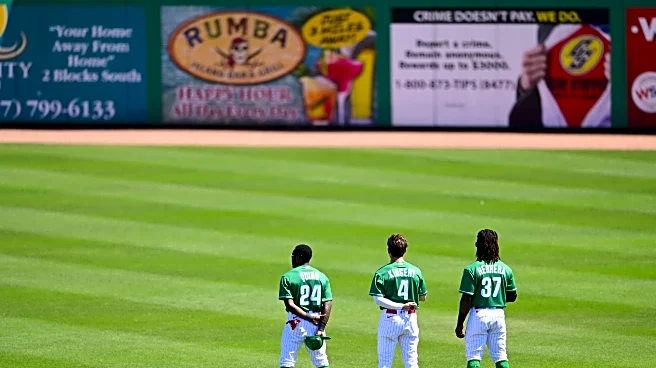What's Happening?
Ashley Hollis, the winner of 'Big Brother' Season 27, has addressed criticism regarding her victory, emphasizing her strategic social gameplay. Hollis, a 25-year-old attorney, secured the $750,000 grand prize by winning six out of seven jury votes. She attributes her success to her ability to avoid being perceived as a threat, which she achieved through her social interactions rather than competition wins. Hollis chose Vince Panaro as her final opponent, believing she had a better chance against him due to his strained relationships within the house. Her decision was validated by her victory, which she believes was aided by her legal background, allowing her to deliver a compelling final speech.
Why It's Important?
Hollis's win underscores the significance of social strategy in reality TV competitions like 'Big Brother.' Her approach challenges the conventional emphasis on physical and competitive prowess, highlighting the importance of interpersonal skills in securing victory. This shift may influence future contestants to prioritize social dynamics over traditional competitive strategies. Additionally, Hollis's success could inspire other participants to leverage their professional skills, such as public speaking and negotiation, to enhance their gameplay. The outcome of Season 27 may also impact the show's format and casting decisions, as producers might seek contestants with diverse skill sets to maintain viewer engagement.
What's Next?
As 'Big Brother' prepares for its 28th season, contestants may increasingly focus on developing their social strategies, inspired by Hollis's victory. The show's producers might consider incorporating new elements that test contestants' social skills, potentially altering the competition's dynamics. Additionally, Hollis's win could lead to discussions among fans and former contestants about the evolving nature of the game, influencing future strategies and alliances. The show's return next summer will likely be closely watched to see how these changes manifest and whether Hollis's approach becomes a new standard for success.
Beyond the Headlines
Hollis's victory highlights broader cultural shifts in reality TV, where social intelligence is gaining recognition as a valuable asset. This trend reflects societal changes that prioritize emotional intelligence and communication skills in various fields, including entertainment. The emphasis on social strategy may also prompt ethical considerations regarding manipulation and authenticity in reality TV, as contestants navigate complex interpersonal dynamics. As viewers become more aware of these elements, the genre may evolve to address these concerns, potentially leading to more transparent and ethical gameplay.









